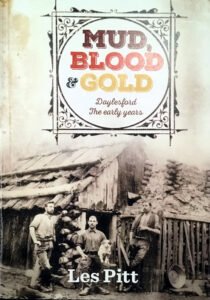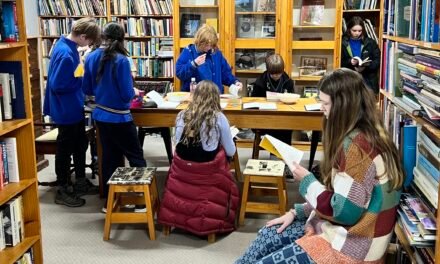Lesley Hewitt
Did you know that in the 1857 Census the total Daylesford population consisted of 264,330 males and 146,432 females, an increase of 73% from the 1854 census? 166,550 lived on the goldfields and 124,000 lived in tents. Think about what such an increase in those population figures meant in terms of law and order, infrastructure (roads, water supply, sanitation, drains), health and welfare services and so on. These and other figures can be found in Mud, Blood and Gold: Daylesford the Early Years by local historian Les Pitt.

The book provides brief vignettes of some of Daylesford’s founders and administrators, a summary of the various goldmines and leads, the development of the Daylesford Hospital, some of the scandals of the era and the establishment of some of the institutions we still have today: the Fire Brigade and the Ladies Benevolent Society.
Chapter 12 looks at the role of women, however, most of the stories relate to women who appeared before the courts either because of being drunk and disorderly or because of prostitution. The book acknowledges that prostitution was one of the few economic roles available to women on the goldfields and highlights how women’s voices have generally been invisible in historical accounts. There are hints of other roles for women with the mention of Mrs Lovelock as the first matron of the Daylesford Hospital (p.66) and the Ladies Benevolent Society, who cared for the destitute men, women and children, mentioning Emma Pryce, wife of the Church of England Minister, and Mrs Burral, the first president of the Society (67). Pitt has used newspaper archives to write his entertaining and informative book. The limited women’s voices reflect what was written at the time. The newspaper accounts are detailed verbatim accounts of what occurred at the time. It raises the question of what future historians may use given local newspapers are disappearing, social media accounts are ephemeral, and it is unknown how cyberspace will continue to store documents and records into the future.
The book is essential reading for those residents interested in our history and the antecedents of some of the issues we face today. A complimentary book by R.D Patterson is A Most Commodious Up-Country Hall: A Brief History of the Daylesford Town Hall. Both books are available at the Daylesford Museum.
Lesley Hewitt is a Daylesford resident and elected Shire Councillor who hosts The 2nd Tuesday Book Review on Hepburn Radio.





